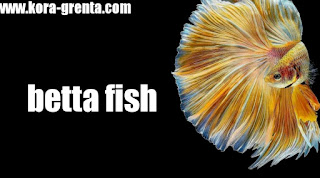The best environment for any fish is one that closely matches the natural home conditions. Most aquarium fish live in warm, tropical regions with
flowing waters, so they require an aquarium with good air quality and temperatures ranging from 22 to 27 degrees Celsius. Betta fish are an exception.
Because they are air-breathing fish, and from shallow standing water they can do well in a quarter size or larger bowl without the need for aeration.
Betta fish are tropical fish
Betta fish come from tropical Southeast Asia where the water is usually around 26°C all year round, and if you live in a temperate climate winter weather can present obstacles, cold temperatures
below 18°C can kill betta fish, and they prefer to be In water temperatures ranging from 24 to 28 C, prolonged exposure to a water temperature cooler
than the optimal water temperature will stress the fish making them more susceptible to disease, and placing the bowl in a warmer location in the house will help, but the best option for those who live in Cold climates is to keep betta fish in a heated aquarium.
Another option is to put a small heater in your pot. Keep in mind that pots are a challenge when it comes to maintaining the right temperature.
They can easily get too hot, get underheated, or have large temperature variations. Frequent fluctuations can be Great temperatures are just as stressful as consistently low
temperatures, and if you choose to keep your betta fish in a container and warm it up with a small heater, be sure to use an aquarium thermometer to closely monitor the temperature.
Do betta fish need a plant to eat
Plants are great for betta fish tanks or ponds, as betta fish like to nest among the leaves to rest, but not to eat, although some have stated that betta fish will nibble on a plant for food, this is not true, and betta fish require meaty foods and they are not
They are plant-eaters in nature, yes, if they have no other food available they will nibble on plants, however, plant matter is not an ideal food for them, and you
should feed them good quality scales or pellet fish food, along with live brine shrimp treats or Frozen, or freeze-dried Tubefix worms, even betta fish will eat live, wingless fruit flies.
If you have a plant in your betta fish bowl, make sure that it does not prevent the betta fish from reaching the surface to breathe. Moreover, it will be much easier to take care of the betta fish if there is no large plant in the way.
If the bowl is large enough, a plant can be used. Small aquariums, but make sure that the plant does not obscure the entire surface of the water.
If you add a live plant in a pot, be sure to use a substrate that provides nutrients to support the healthy growth of the live plant.
A small plant in a small pot of substrate, available at pet stores, will suffice.
It is easy to remove when performing routine maintenance.
Main habitat factors for betta fish
The key factors to keeping your betta fish happy and healthy are keeping the water and bowl clean by performing regular water changes, feeding your betta fish a varied diet and avoiding leaving the water cold (below 75 F) for long periods
of time, the appearance and behavior of your betta fish is a good way to gauge They can feel, healthy bettas are colorful, have a healthy appetite, are active and
interested in what is going on around them, listless and inactive bettas with poor appetite or frayed fins are a red flag that something is wrong with the environment.
Clean the balls in your betta fish tank
The glass marbles in the bottom of the bowl are fine and easy to remove for cleaning, keep in mind that food can actually fall under it, so be sure to clean it out as often as you change the water regularly, and don't allow food debris to build up in the trivet.

